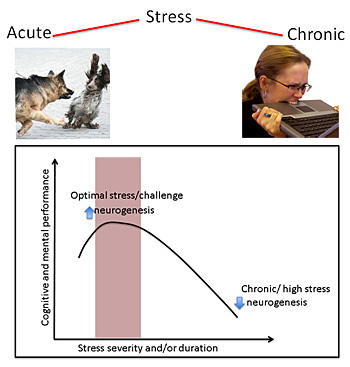Overworked and stressed out? Look on the bright side. Some stress is good for you.
|
ADVERTISEMENT |
“You always think about stress as a really bad thing, but it’s not,” says Daniela Kaufer, associate professor of integrative biology at the University of California, Berkeley. “Some amounts of stress are good to push you just to the level of optimal alertness, behavioral, and cognitive performance.”
New research by Kaufer and UC Berkeley post-doctoral fellow Elizabeth Kirby has uncovered exactly how acute stress—short-lived, not chronic—primes the brain for improved performance.

Although too little stress can lead to boredom and depression, too much can cause anxiety and poor health. The right amount of acute stress, however, tunes up the brain and improves performance and health.
In studies on rats, the researchers found that significant but brief stressful events caused stem cells in the rats’ brains to proliferate into new nerve cells that, when they matured two weeks later, improved the rats’ mental performance.
…
Add new comment